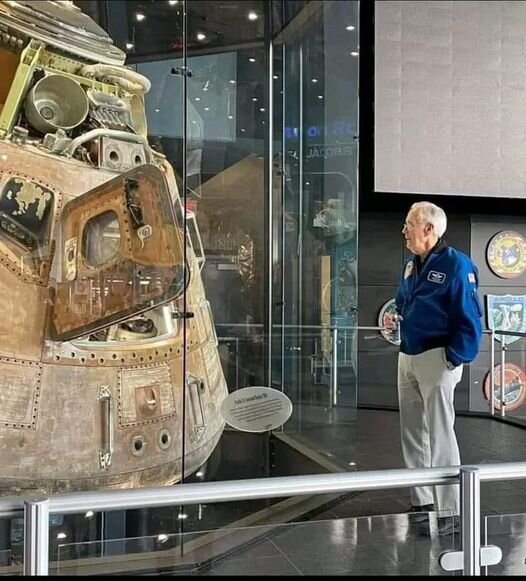This page is a permanent link to the reply below and its nested replies. See all post replies »
Picklebobble2 · 56-60, M
I find it interesting that America did this six times successfully 50 + years ago yet other countries are still finding this an impossible achievement to do despite the fact that technology and materials and fuel will all have been perfected 100 % since.
Do they not have access to the data from that time ? Or are their attempts merely nations sabre rattling to those at home (this is what we could do if we wanted) kinda thing ?
Do they not have access to the data from that time ? Or are their attempts merely nations sabre rattling to those at home (this is what we could do if we wanted) kinda thing ?
DrWatson · 70-79, M
@Picklebobble2 Nowadays, everyone including the US, is trying to do things more economically. The Saturn V booster was enormous. It was much bigger than the space shuttle.
As for the Japanese lander that was in the news recently, it did something that the Apollo landings never attempted, which was to land on a slope. It succeeded, but it landed upside down.
As for the Japanese lander that was in the news recently, it did something that the Apollo landings never attempted, which was to land on a slope. It succeeded, but it landed upside down.
Picklebobble2 · 56-60, M
@DrWatson But again, why bother with trying to recreate that which has already been done ?
Especially since the successful creation and retirement of the space shuttle was a massive step forward from it ?
Especially since the successful creation and retirement of the space shuttle was a massive step forward from it ?
DrWatson · 70-79, M
@Picklebobble2 I think the new wave of moon missions has the goal of a long term base, or bases there.
Also, there is more science to be done. The Japan probe, which got reawakened briefly when the solar panels finally got exposed to sunlight, has been doing geological analysis. Other goals are to land near the south pole and search for water. And there might ultimately be mining operations on the moon. (I hope not, but that is part of the interest.)
Also, there is more science to be done. The Japan probe, which got reawakened briefly when the solar panels finally got exposed to sunlight, has been doing geological analysis. Other goals are to land near the south pole and search for water. And there might ultimately be mining operations on the moon. (I hope not, but that is part of the interest.)
Picklebobble2 · 56-60, M
@DrWatson For some reason there seems to be a lot of interest in going to Mars in the scientific community from what I've read.
I still can't figure that one out.
It's the most inhospitable place especially if you want to stay for any length of time.
Maybe that's the idea.
Treat space exploration the same way we currently use Interstate gas stations !
Stop. Explore. Create a base. Drop an exploratory crew. Refuel. And move on.
I still can't figure that one out.
It's the most inhospitable place especially if you want to stay for any length of time.
Maybe that's the idea.
Treat space exploration the same way we currently use Interstate gas stations !
Stop. Explore. Create a base. Drop an exploratory crew. Refuel. And move on.
DrWatson · 70-79, M
@Picklebobble2 Yeah. The scientific community would love to learn more about Mars. But they figured out a long time ago that robotic landers are a lot more cost effective, and that human flight should be reserved for specific scientific purposes, such as when a robotic lander finds evidence of life at a particular site -- that would be a place where humans could learn a lot more by actually being there.
On the other hand, there are others who want to colonize Mars -- give it an atmosphere and water, etc. I hate that idea, because they would be killing Mars. But people see it as "the new frontier". Just as Europeans came to the shores of America, and just as the United States expanded to fill the vast interior of the country, Mars in their view is the next stage.
On the other hand, there are others who want to colonize Mars -- give it an atmosphere and water, etc. I hate that idea, because they would be killing Mars. But people see it as "the new frontier". Just as Europeans came to the shores of America, and just as the United States expanded to fill the vast interior of the country, Mars in their view is the next stage.
Longpatrol · 31-35, M
@Picklebobble2 It's basically trying to build hope that if and when we make Earth too uninhabitable for the rich to live on, they can get their own exclusive uninhabitable planet.
Picklebobble2 · 56-60, M
@Longpatrol When there's no more exclusive real estate at home; take a trip somewhere far more exclusive







